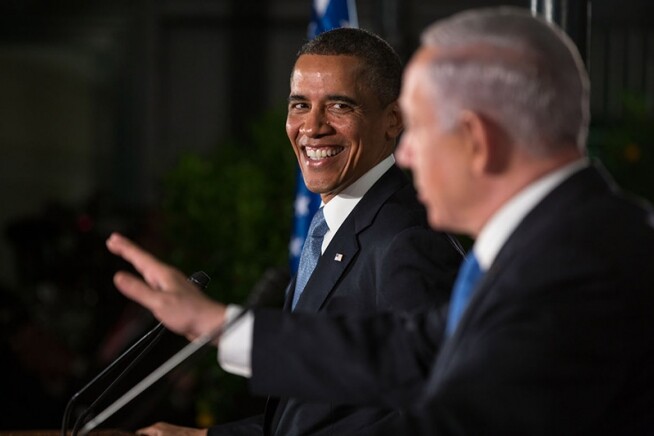Rights and Accountability 24 June 2014

Almost three years have passed since the United States government extrajudicially murdered American citizen Anwar al-Awlaki with a drone strike in Yemen. Al-Awlaki, although described by the government as a “terrorist” mastermind, had never been charged with any crime.
The Obama adminstration refused to disclose the legal reasoning behind the killing. But thanks to Freedom Information Act lawsuits by The New York Times and the American Civil Liberties Union (ACLU), a redacted version of the Department of Justice memo which outlines the Obama administration’s rationale for killing American citizens abroad without trial is now public.
Authored by David Barron — former chief of the Justice Department’s Office of Legal Counsel, who has since been appointed by Obama to a federal judgeship — the 41-page document seeks to legitimize so-called targeted killings, a practice Obama’s predecessor, George W. Bush, vigorously condemned Israel for using against Palestinians during the second intifada.
Shout out to Israel
This makes it all the more ironic that the Obama administration’s kill memo cites an Israeli Supreme Court decision to justify al-Awlaki’s summary execution.
On page 40, the kill memo — using an alternative transliteration for al-Awlaki’s name — states:
In addition to the nature of the threat posed by al-Aulaqi’s activities, both agencies here have represented that they intend to capture rather than target al-Aulaqi if feasible; yet we also understand that an operation by either agency to capture al-Aulaqi in Yemen would be infeasible at this time.
Below that, the memo cites Public Committee Against Torture in Israel (PCATI) v. Government of Israel, a 2006 Israeli Supreme Court decision that ruled that the targeted assassinations of hundreds of Palestinians since the start of the second intifada were legal and did not violate international law. The memo provides this as the basis for determining the infeasibility of al-Awlaki’s capture, with the following explanation in parentheses:
although arrest, investigation and trial “might actually be particularly practical under the conditions of belligerent occupation, in which the army controls the area in which the operation takes place,” such alternatives “are not means which can always be used,” either because they are impossible or because they involve a great risk to the lives of soldiers.
War of terror
It should not come as a surprise that the US is echoing Israeli rationale to validate its own belligerence in the “war on terror,” which bears a striking resemblance to Israel’s decades-long war on the Palestinians and its neighbors.
In the summer of 2001, then US Ambassador to Israel Martin Indyk declared, “The United States government is very clearly on record as against targeted assassinations. They are extrajudicial killings, and we do not support that.”
This philosophy was thrown out the window following the 11 September 2001 attacks in New York, Washington, DC and Pennsylvania. Even so, the Bush administration carried out extrajudicial killings sparingly in comparison to Obama, who has embraced assassination as the centerpiece of his counterterrorism strategy, killing thousands in Yemen, Pakistan, Afghanistan and Somalia in the process.
What happens in Israel never stays in Israel
In 2007, the Yale Law Journal warned in an editorial that as the “the world’s first judicial decision on targeted killings,” the Israeli ruling would weaken international law because it expanded the scope of who could be targeted for due-process free execution by broadening the definition of “direct participation in hostilities,” which ultimately “weakened the protections that international law affords to all civilians, not just to terrorists.”
The Journal was prescient in concluding that the Israeli decision would “influence others analyzing targeted killings, including the United States.”
In 2009, Daniel Reisner, the former head of the Israeli army’s International Law Division, admitted as much. “International law progresses through violations,” he told Haaretz in the aftermath of Operation Cast Lead — Israel’s invasion of Gaza in December 2008-January 2009.
“We invented the targeted assassination thesis and we had to push it,” Reisner said. “At first there were protrusions that made it hard to insert easily into the legal molds. Eight years later it is in the center of the bounds of legitimacy.”
Today, Israel’s assassinations in Gaza are so routine that barely anyone bats an eye. The same is true for drone strikes in Yemen and Pakistan, which have killed at least four Americans, including Awlaki’s 16-year-old son, Abdulrahman, a crime the Obama administration refuses to explain and the American justice system refuses to probe.
What began as an Israeli method to suppress Palestinian resistance is now being used to kill people over a vast swath of territory with a population of hundreds of millions. This is what happens when countries like the United States and Israel are allowed to push the boundaries of international law with impunity.
Shared values
“The United States and Israel both seek to subvert international law by putting forth flawed legal interpretations to advance their extreme and unlawful positions and their own impunity, whether in support of arbitrary and indefinite detention, torture, or in this case extrajudicial killings,” said Maria LaHood, a senior staff attorney with the Center for Constitutional Rights, in an email.
LaHood was one of the Center for Constitutional Rights attorneys working on the cases challenging Obama’s killings of American citizens.
She was also one of the attorneys on the class action lawsuit against Avi Dichter, the former head of Israel’s Shin Bet secret police, who in 2002 ordered that a one-ton bomb be dropped on a Gaza City apartment building as part of an extrajudicial assassination.
The atrocity killed fifteen Palestinians and injured 150. The case was dismissed in 2007 by US district judge William Pauley on immunity grounds after the US government weighed in on Dichter’s behalf.
LaHood added, “If the interpretation of international law were up to the US and Israel, there would scarcely be any law left.”






Comments
American and Isreali
Permalink Kathryn replied on
American and Isreali "exceptionalism" on display for the world to see....they are "exceptional" at killing/murder